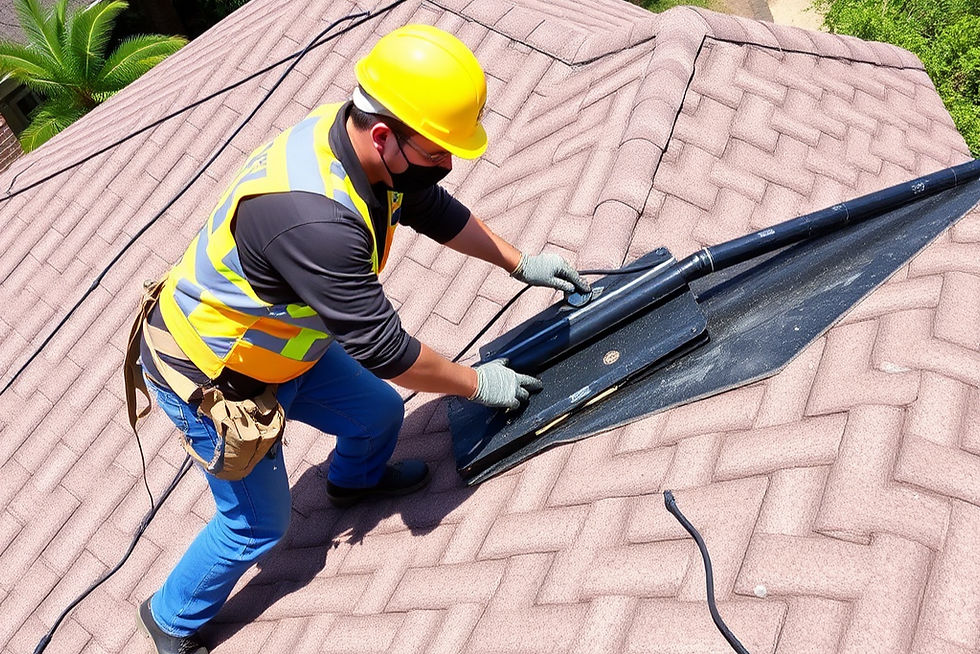All About Polystyrene Wall Cladding
- Kate Westall
- Aug 17, 2017
- 3 min read
Polystyrene wall cladding, commonly referred to as EPS (expanded polystyrene), is a lightweight, versatile insulation material quickly gaining popularity in properties across Australia. The material lends itself well to building facades, cold storage, air conditioning, vehicles and ships, to name just a few.
Produced from solid beads of polystyrene, the end product’s fine spherical cells are comprised of 98% air. This is what makes the material so lightweight, without affecting its structural integrity. In fact, after rendering, the material becomes incredibly strong while retaining its light nature.
EPS is known for its high strength-to-weight ratio, meaning that it can offer impressive compressive and flexural strength while retaining stability (although this will depend on the density you choose). This is why polystyrene can be used in everything from flimsy disposable cups to highly durable polystyrene wall cladding.
The material is well-suited to a variety of construction jobs, as it can be cut, moulded or shaped as you need it. EPS panels can be installed to timber stud, steel stud, concrete and masonry and easily adapted to practically any shape, size or application. This provides an endless amount of design opportunities for builders and architects to experiment with. Its lightweight nature also means it is easy to handle, quick to install and effortless to clean up after installation, making it the favourite material of many builders.
Benefits of EPS Wall Cladding
EPS offers high insulation and low thermal conductivity, thereby reducing your energy bills and environmental impact. Because the material’s cellular structure is comprised primarily of air, the heat conduction coefficient is kept under 0.039, which prevents the sun’s rays from warming up the inside of your home. The thermal efficiency of EPS is further bolstered by the fact that it is installed on the outside of the frame, meaning the wall cavity is not as affected by the elements. Its insulating properties also helps to keep out noise, creating a more comfortable home for you.
Another environmentally-friendly feature of EPS is that it is recyclable, making it one of the most sustainable cladding materials available on the market. Additionally, the full life cycle energy consumption of EPS is fairly low and the manufacturing process does not use ozone depleting CFCs and HCFCs or Freon. This also means that there are no harmful chemicals present in the final product, making it an environmentally-friendly insulation option.
When building a property, you are also looking to maximize the available space. EPS is narrow, allowing for slimline walls and more internal space to enjoy within the property.
EPS also has low water absorption properties and water and vapour barrier, meaning that humidity will not negatively impact the material. You can count on the material to retain its features even if put under prolonged saturation. EPS is also fire-retardant, adding extra environmental protection to your property. This makes EPS particularly well-suited for areas with extreme weather conditions or high instances of bushfires.
A problem with some other insulation materials is their vulnerability to pests. EPS, on the other hand, is resistant to white ants, termites and rodents, making it a valuable investment into the longevity of your property.
Materials to be Used:
Of course, any materials you use to construct your property should also be appealing to the eye. EPS is available in textured finishes in a variety of colours and with a decorative sealer, making it an attractive choice that will boost the street appeal of your home or business.
When building a new property, it is critical to know that all the materials you are using will last for years to come. Your home is an investment, meaning you have to make the right long-term choices. EPS provides a plethora of benefits to your home, from thermal insulation to durable construction, and is a more long-lasting choice than many other wall cladding options. If selling your home or using it as an investment property, you will benefit from the value added by these features, and if planning to live in the property yourself, you will enjoy the material’s energy-saving properties year after year.
This durable, versatile and environmentally responsible material lends itself well to a variety of purposes, and is guaranteed to be a smart investment for your new home. Make sure to source your polystyrene wall cladding from a well-known manufacturer to ensure you receive high-quality materials.





Comments